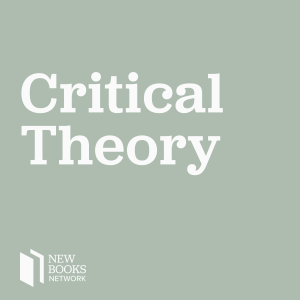
- Podcast Features
-
Monetization
-
Ads Marketplace
Join Ads Marketplace to earn through podcast sponsorships.
-
PodAds
Manage your ads with dynamic ad insertion capability.
-
Apple Podcasts Subscriptions Integration
Monetize with Apple Podcasts Subscriptions via Podbean.
-
Live Streaming
Earn rewards and recurring income from Fan Club membership.
-
Ads Marketplace
- Podbean App
-
Help and Support
-
Help Center
Get the answers and support you need.
-
Podbean Academy
Resources and guides to launch, grow, and monetize podcast.
-
Podbean Blog
Stay updated with the latest podcasting tips and trends.
-
What’s New
Check out our newest and recently released features!
-
Podcasting Smarter
Podcast interviews, best practices, and helpful tips.
-
Help Center
-
Popular Topics
-
How to Start a Podcast
The step-by-step guide to start your own podcast.
-
How to Start a Live Podcast
Create the best live podcast and engage your audience.
-
How to Monetize a Podcast
Tips on making the decision to monetize your podcast.
-
How to Promote Your Podcast
The best ways to get more eyes and ears on your podcast.
-
Podcast Advertising 101
Everything you need to know about podcast advertising.
-
Mobile Podcast Recording Guide
The ultimate guide to recording a podcast on your phone.
-
How to Use Group Recording
Steps to set up and use group recording in the Podbean app.
-
How to Start a Podcast
-
Podcasting
- Podcast Features
-
Monetization
-
Ads Marketplace
Join Ads Marketplace to earn through podcast sponsorships.
-
PodAds
Manage your ads with dynamic ad insertion capability.
-
Apple Podcasts Subscriptions Integration
Monetize with Apple Podcasts Subscriptions via Podbean.
-
Live Streaming
Earn rewards and recurring income from Fan Club membership.
-
Ads Marketplace
- Podbean App
- Advertisers
- Enterprise
- Pricing
-
Resources
-
Help and Support
-
Help Center
Get the answers and support you need.
-
Podbean Academy
Resources and guides to launch, grow, and monetize podcast.
-
Podbean Blog
Stay updated with the latest podcasting tips and trends.
-
What’s New
Check out our newest and recently released features!
-
Podcasting Smarter
Podcast interviews, best practices, and helpful tips.
-
Help Center
-
Popular Topics
-
How to Start a Podcast
The step-by-step guide to start your own podcast.
-
How to Start a Live Podcast
Create the best live podcast and engage your audience.
-
How to Monetize a Podcast
Tips on making the decision to monetize your podcast.
-
How to Promote Your Podcast
The best ways to get more eyes and ears on your podcast.
-
Podcast Advertising 101
Everything you need to know about podcast advertising.
-
Mobile Podcast Recording Guide
The ultimate guide to recording a podcast on your phone.
-
How to Use Group Recording
Steps to set up and use group recording in the Podbean app.
-
How to Start a Podcast
-
Help and Support
- Discover

Lehasa Moloi, "Developing Africa?: New Horizons with Afrocentricity" (Anthem Press, 2024)
 2024-02-12
2024-02-12
Developing Africa? New Horizons with Afrocentricity (Anthem Press, 2024) is written for those who are interested in theoretical debates as they relate to the field of Development Studies. It is aimed at academics and all those who work in the field of development, politicians, policy-makers and civil servants who need to familiarize themselves with key historical development debates, especially those relevant to Africa. The book takes an Afrocentric intellectual standpoint, grounded in the theory of Afrocentricity, in its interrogation of the idea and processes of development in Africa. It also adopts an historical approach in its interrogation of the idea of African development as a by-product of political deliberations. This book is about how the discourse of development as a field of study needs to be re-oriented towards African-based epistemologies to dismantle coloniality, in opposition to the historical embeddedness of development discourse in Eurocentrism.
This book contests the limitation of the modern African understanding of Africa’s journey with development to the period of the aftermath of World War II, to be specific, to President Harry S. Truman’s 1949 Point Four programme. Instead, the book argues that, that journey should be understood holistically. By this, I mean that Africa’s engagement with development did not begin with the politics of the Euro-North American political bloc – the story of African development must take into consideration Africa’s classical civilization, namely, the Nile Valley civilization and its contributions to human civilization. Such an approach provides a more holistic interrogation and casts light on how Africa’s history of greatness continues to be an inspiration even in modern times. Such an approach rejects the many reductionist lies and half-truths that undergird the modernist paradigm which seeks to portray African people as dependent beneficiaries of the colonial Euro-modernity framework. This framework has undermined the humanity of non-Western people in general, and Africans in particular. The book pursues the tradition of decolonial epistemic reflections grounded on Afrocentricity as its theoretical thrust to oppose discourses that are riddled with a racist agenda towards those in the Global South, especially in Africa to enable endogeneity. In the spirit of the pursuit for cognitive justice in the 21st century, this book argues that the discourse of development must be decolonized from hegemonic Eurocentric propaganda and needs to be framed from the viewpoint of those who have been seen as being on the receiving end, those projected as “backwards” from a Eurocentric perspective.
Learn more about your ad choices. Visit megaphone.fm/adchoices
Support our show by becoming a premium member! https://newbooksnetwork.supportingcast.fm/critical-theory
More Episodes
Create your
podcast in
minutes
- Full-featured podcast site
- Unlimited storage and bandwidth
- Comprehensive podcast stats
- Distribute to Apple Podcasts, Spotify, and more
- Make money with your podcast
It is Free
- Privacy Policy
- Cookie Policy
- Terms of Use
- Consent Preferences
- Copyright © 2015-2025 Podbean.com




